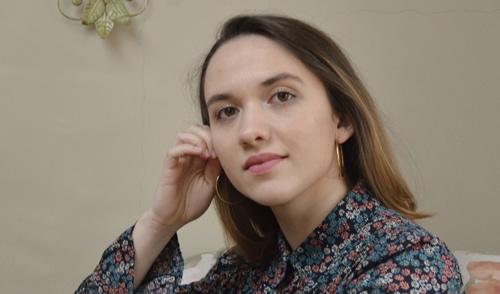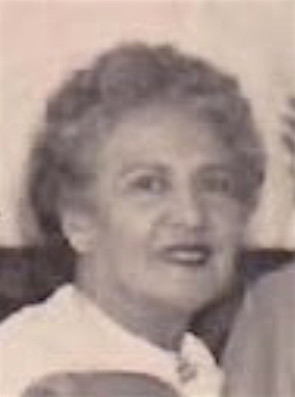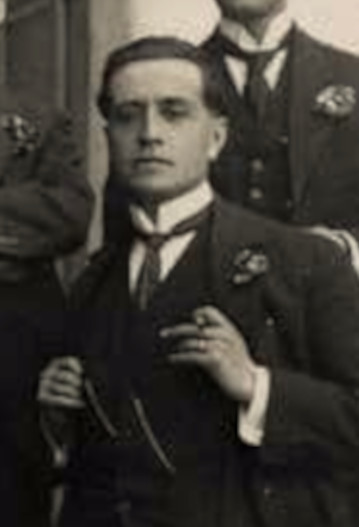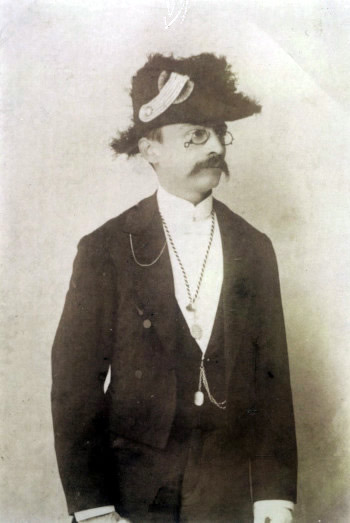Translated to English by Richard Gabela on April 10, 2024, from the original work “Testimonios” by Eugenio Moreno Heredia (1926—1997) of Cuenca, Ecuador. I have translated the title of the poem as “Testimonies.”
Continue reading “Testimonies by Eugenio Moreno Heredia”Category: Poetry
Sick Motherland by Fanny Caicedo
Translated to English by Richard Gabela on April 10, 2024, from the original work “Patria Enferma” by Fanny Caicedo (1932–2001) of Yaguachi, Ecuador. I have translated the title of the poem as “Sick Motherland.”
Continue reading “Sick Motherland by Fanny Caicedo”The Moon and the Boy by Diógenes Cuero Caicedo
Translated to English by Richard Gabela on April 10, 2024, from the original work “La Luna y el Niño” by Diógenes Cuero Caicedo (1948–2019) of Esmeraldas, Ecuador. I have translated the title of the poem as “The Moon and the Boy.”
Continue reading “The Moon and the Boy by Diógenes Cuero Caicedo”Kiss Me by Mary Corylé
Translated to English by Richard Gabela on April 9, 2024, from the original work “Bésame” (1925) by Mary Corylé (1894-1976) of Cuenca, Ecuador. I have translated the title of the poem as “Kiss Me.”
Continue reading “Kiss Me by Mary Corylé”Dead Minute by Gerardo Chiriboga
Translated to English by Richard Gabela on April 5, 2024, from the original work “Minuto muerto” by Gerardo Chiriboga (1895-1966) of Riobamba, Ecuador. I have translated the title of the poem as “Dead Minute.”
Continue reading “Dead Minute by Gerardo Chiriboga”Spiritual Colloquy by Jorge Ismael Gandú
Translated to English by Richard Gabela on April 5, 2024, from the original work “Coloquio Espiritual” by Jorge Ismael Gandú (1904-Unknown) of Guayaquil, Ecuador. I have translated the title of the poem as “Spiritual Colloquy.”
Continue reading “Spiritual Colloquy by Jorge Ismael Gandú”Dance of the Leaves by Gerardo Chiriboga
Translated into English by Richard Gabela on April 5, 2024, from the original work “Danza de las Hojas” by Gerardo Chiriboga (1895-1966) of Riobamba, Ecuador. I have translated the title of the poem as “Dance of the Leaves.”
Continue reading “Dance of the Leaves by Gerardo Chiriboga”Little Girl from My Neighborhood by Inés Márquez Moreno
Translated to English by Richard Gabela on April 9, 2024, from the original work “Muchachita de mi Barrio” by Inés Márquez Moreno (1914–2017) of Cuenca, Ecuador. I have translated the title of the poem as “Little Girl from My Neighborhood.”
Continue reading “Little Girl from My Neighborhood by Inés Márquez Moreno”Dry Leaves by Honorato Vázquez Ochoa
Translated to English by Richard Gabela on April 2, 2024, from the original work “Hojas secas” by Honorato Vázquez Ochoa (1855-1933) of Cuenca, Ecuador. I have translated the title of the poem as “Dry Leaves.”
Continue reading “Dry Leaves by Honorato Vázquez Ochoa”Tamara Mejía Molina
Tamara Mejía Molina (Guayaquil, 1987) is an Ecuadorian poet and art critic. She is the author of several books, including “Esto soy yo, Marakaramazov,” “Historia esculpida de Manuel Velastegui,” and “Últimos días de una herida,” and has written more than 20 art criticism articles for cultural newspapers. Molina’s work as a poet has brought her international recognition, and she has been invited to participate in various poetry festivals in Ecuador and abroad. In 2022, her poetry book “Últimos días de una herida,” was awarded the Ileana Espinel Cedeño Poetry Festival Award.
Continue reading “Tamara Mejía Molina”Identity for Oblivion by Teodoro Vanegas Andrade
Translated to English by Richard Gabela on April 18, 2023, from the original work “La identidad para el olvido” by Teodoro Vanegas Andrade (1926-2002) of Cuenca, Ecuador. I have translated the title of the poem as “Identity for Oblivion.”
Continue reading “Identity for Oblivion by Teodoro Vanegas Andrade”Camila Peña
Camila Peña (Cuenca, 1995) is an Ecuadorian poet, radio host and ballet dancer. In 2020 her first poetry book “Jardín Transparente,” won the Francisco Ruiz Udiel Hispanic American Poetry Award and will be published by Valparaíso Ediciones. She has a master’s degree in Artistic, Literary and Cultural Studies with a specialty in Comparative Literature, Literary Theory and Rhetoric from the Autonomous University of Madrid. In addition, she is a ballet dancer with 19 years of training and experience in creating artistic projects. She is currently the host of a cultural program on a radio station in Cuenca.
Continue reading “Camila Peña”Zaida Letty Castillo
Zaida Letty Castillo de Saavedra (Guayaquil, February 5, 1890 – Guayaquil, July 30, 1977) was an Ecuadorian poet. She hailed from a family of journalists and writers. She wrote under the pseudonym Djenana, which she adopted from a character in “Les Désenchantées,” a French novel by Pierre Loti. She published her works in “El Telegrafo Literario,” a literary supplement of the newspaper El Telégrafo, owned by her family. She also directed the supplement “La mujer y el Arte” of the Peruvian newspaper “El Comercio,” as well as other publications in Ecuador and Venezuela. She was a founder of the Guayas branch of the House of Ecuadorian Culture and her poetry appears in several anthologies of Latin American poetry.
Continue reading “Zaida Letty Castillo”Agustín Cuesta Vintimilla
Agustín Cuesta Vintimilla (Cuenca, 1884 – December 6, 1946) was an Ecuadorian poet, medical doctor, university professor, historian, legislator, and director of public assistance. “Cantos de mi heredad,” his poetry collection, was published in 1918. A school bearing his name can be found in Baños, a parish located to the south-west of the Cuenca canton.
Continue reading “Agustín Cuesta Vintimilla”Miguel Valverde
Miguel Valverde Letamendi (Guayaquil, December 6, 1852 – Rome, April 19, 1920) was an Ecuadorian politician, diplomat, writer, poet, journalist and translator. He is considered a precursor of modernismo in Ecuador. In 1890 he was the Director of the Municipal Library of Guayaquil. In 1915 he published “Libro de versos,” containing a translation of Victor Hugo’s “Religions et religion,” a political tract supporting belief in God but attacking organized religion, which caused a scandal among followers of the church. Due to his political views he was often arrested and many times exiled. He also served the country in various governmental posts during the presidencies of his allies. In 1883, General Eloy Alfaro appointed him Minister of the Interior, War and Foreign Relations of the Governments of Manabí and Esmeraldas. In 1901, General Leonidas Plaza appointed him Minister of the Interior and Police.
Continue reading “Miguel Valverde”




